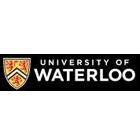This program provides a basic quantitative background in science and mathematics while offering students greater opportunity to select courses in a wide range of environment-related subject areas, such as chemistry, ecology, microbiology, geography, and hydrogeology. Students will acquire the knowledge base required to assess the environmental impact of surface and subsurface contamination from industry, urbanization, agriculture, and mining.
Possible careers: Environmental issues and legislation in government and the environmental consulting industry.
Get a solid grounding in chemistry and biology and still have lots of room to explore environment-related courses in ecology, aquatic ecosystems, geology, hydrology, and more. You’ll learn about climate change, groundwater flow and contamination, environmental impacts of pollution, responsible extraction of Earth resources, waste disposal, and human engineering of Earth processes.
Specialize in Ecology to address ecological sustainability and biodiversity while learning about the fundamental science of life on Earth. Go the Geoscience route and focus on the interactions among the geosphere, hydrosphere, atmosphere, and biosphere as well as the human activities that encompass the complex and dynamic Earth System.
Or choose the Water Science specialization and investigate the unique properties of water; the distribution and movement of fresh and salt water above, on, and within the Earth; and the quality and quantity of water that humans depend upon to survive and thrive on this planet.
Any route you choose, whether you want to gain paid work experience through co-op or not, you’ll be part of one of the top four environmental sciences programs in Canada (QS World University Rankings by Subject 2023) — and graduate with the scientific knowledge, creativity, and expertise you need to create a more sustainable world.






